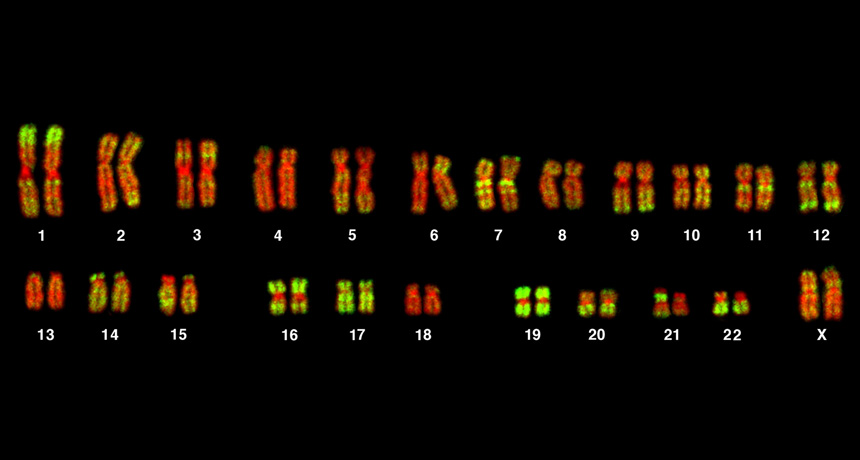Down’s syndrome goes beyond chromosome 21

Genetic changes associated with Down's syndrome may happen on all chromosomes, not just chromosome 21, a study suggests.
Bolzer et al/PLOS ONE 2005/Wikimedia Commons (CC BY 2.5)

Genetic changes associated with Down's syndrome may happen on all chromosomes, not just chromosome 21, a study suggests.
Bolzer et al/PLOS ONE 2005/Wikimedia Commons (CC BY 2.5)